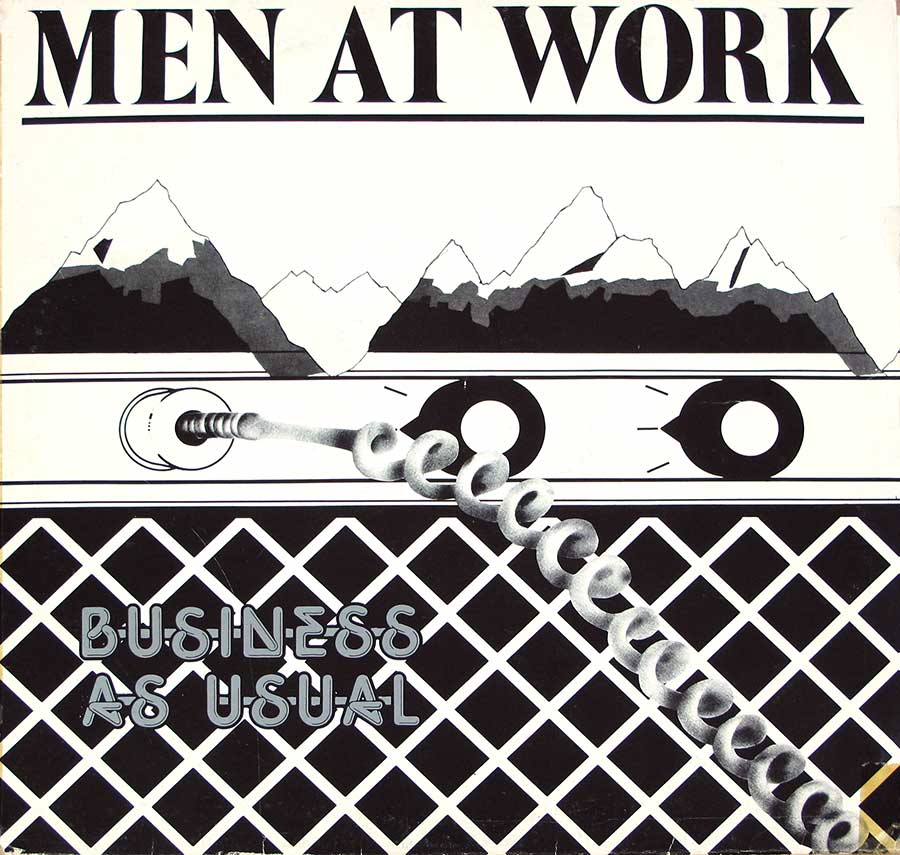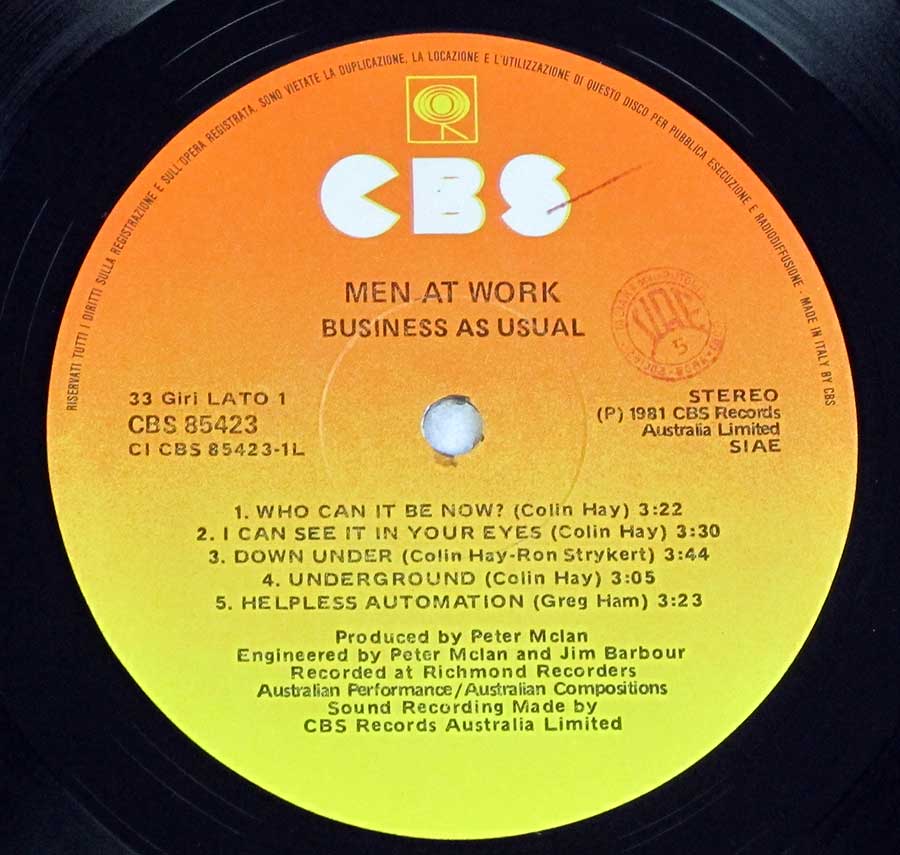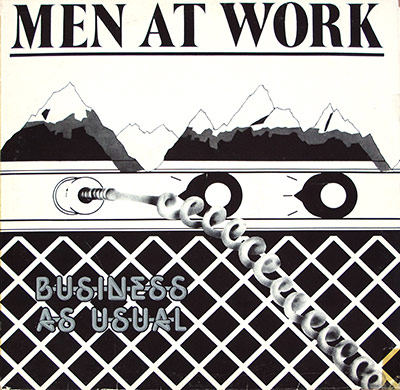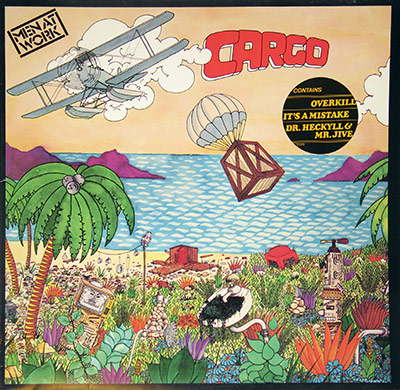About Men at Work
Men at Work in the 1980s: AustraliaÕs Chart-Topping Export
During the 1980s, few bands captured global attention as quickly and vividly as Men at Work. Emerging from MelbourneÕs vibrant music scene, the group became one of AustraliaÕs most successful musical exports of the decade. Their sharp blend of new wave, pop-rock, and reggae-infused rhythms, combined with clever lyrics and quirky humor, helped them break into international markets with remarkable speed.
Formation and Breakthrough
Formed in 1979, the original lineup featured Colin Hay (vocals, guitar), Ron Strykert (guitar), Greg Ham (flute, sax, keyboards), John Rees (bass), and Jerry Speiser (drums). After honing their sound on the local circuit, Men at Work released their debut album Business as Usual in Australia in 1981. Fueled by infectious singles like "Who Can It Be Now?" and the iconic "Down Under", the album shot to No.1 and soon replicated that success abroad.
When Business as Usual was released in the U.S. in 1982, it took the Billboard charts by storm. It held the No.1 album spot for 15 consecutive weeksÑan extraordinary feat for a debut albumÑand made Men at Work the first Australian band to simultaneously top the U.S. album and singles charts.
Global Success and Touring
Their success was not just commercial; it was also symbolic. "Down Under", with its whimsical references to Vegemite, men in Brussels, and Australian identity, became a cultural touchstone. The bandÕs unique instrumentationÑparticularly HamÕs use of flute and saxÑhelped distinguish their sound in a crowded musical landscape.
In 1983, the band released their second album, Cargo. Though not as dominant as their debut, it was still a commercial success, with singles like "Overkill", "Dr. Heckyll & Mr. Jive", and "ItÕs a Mistake" earning radio play and video rotation on MTV. These songs showed a more introspective and mature tone while retaining the bandÕs melodic sensibility.
Challenges and Decline
Despite their success, internal tensions began to surface. Creative differences and exhaustion from relentless touring led to the departure of Rees and Speiser after Cargo. By the time their third album, Two Hearts, was released in 1985, only Colin Hay and Greg Ham remained from the original lineup. The album failed to capture the publicÕs imagination, and by 1986, Men at Work had effectively disbanded.
Legacy
Though their time at the top was brief, Men at Work left a lasting legacy. Their debut album remains a landmark of early 1980s pop, and songs like "Down Under" have become perennial favorites. Colin Hay went on to a successful solo career, often performing acoustic versions of the bandÕs hits, while Greg Ham remained a beloved figure in Australian music until his death in 2012.
Men at Work's meteoric rise and global appeal made them one of the defining acts of the early 1980s. Their unique sound, quirky charm, and cultural pride helped put Australian music on the international map.






